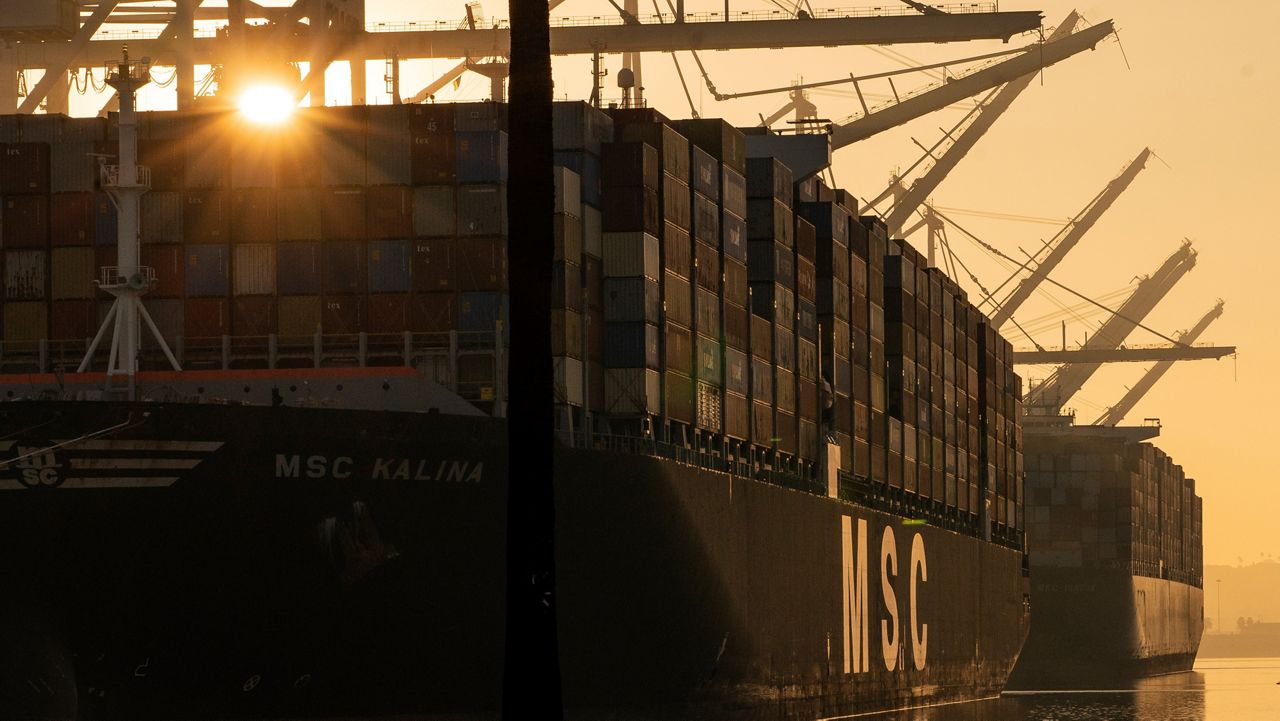LOS ANGELES — The Port of Los Angeles continues to handle record amounts of cargo. The San Pedro shipping complex handled 5% more volume in July than it did a year ago, and has set records five out of the first seven months of 2022, Executive Director Gene Seroka reported Wednesday.
“After seven months, we’re in a dead heat with 2021, our best cargo year ever,” he said.
The port has handled 6.3 million containers so far this year — the same number as last year at this time.
The three factors keeping volumes at all-time highs are demand, fluidity and data, he added. Despite an 8.5% inflation rate and elevated gas prices, retail, wholesale and manufacturing numbers have remained strong. Still, Seroka expects August import figures to “ease somewhat,” as China factory orders slow and U.S. retailers report they have too much inventory.
The Port has been doing a better job of moving the cargo coming through its terminals. Unlike last summer, when the port was forced to park ships at sea while it struggled to handle an unprecedented influx of cargo resulting from COVID-induced demand, “cargo velocity on our marine terminals is better than last year,” Seroka said.
Even with cargo volumes remaining at record levels, the port has reduced the number of ships idling offshore from 109 in January to 13 as of Wednesday. The time containers are waiting to be loaded on trucks has also decreased from a high of 11 days to 4 days currently.
Seroka credited the port optimizer data-mining system with helping the cargo complex and the many companies it works with “to see around corners and tackle problems before they arise.”
The Port of LA is the only one in the country to use such a system, though the U.S. Department of Transportation is working to build a similar nationwide port data operation.
Last week, the San Pedro shipping complex received a $3 million grant from the U.S. Department of Transportation to enhance its port optimizer as part of $17 billion allocated for ports and waterways in last year’s Bipartisan Infrastructure Law. The DOT also granted $20 million for a grade separation project that will improve truck access to Terminal Island to reduce cargo congestion.
The Inflation Reduction Act President Biden signed Tuesday allocates an additional $3 billion to help ports deploy electric equipment and reduce emissions.
“This is a milestone moment with respect to investment in our nation’s ports,” Seroka said. “It’s critical that this money goes where it’s needed most. As the Western hemisphere’s busiest gateway, we’ll be pursuing every dollar.”



